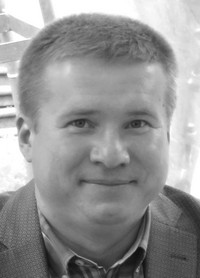Competitive progress related psychological aspects of trainer-trainee relationship
Keywords:
athlete, trainer, self-attitude, competitive progress, mental wellbeing, student.Abstract
Objective of the study was to survey and analyze the trainer-trainee relationship versus the self-attitudes, competitive progress and mental wellbeing test data.
Methods and structure of the study. We sampled for the survey the averagely 22-year-old academic athletes (n=182, 47% male 53% female sample, including 55% and 45% of skilled and unskilled athletes, respectively) majoring in the Physical Education discipline at Herzen State Pedagogical University, Lesgaft National State University and Pushkin Leningrad State University in St. Petersburg. The sample was subject to the Trainer’s Social Perception, Personality and Managerial Skills Survey (by Y. Khanin, A. Stambulov); Self-attitude Questionnaire (by V.V. Stolin, S.R. Pantileev); and K. Riff Mental Wellbeing Scale (adapted by L. Zhukovskaya and E. Troshchikhina).
Results and discussion. The sample was tested with competitive success / skills unspecific generally positive trainer-trainee relationship – that may be due to the high professional determination of the sample and cooperative trainer service. Competitively successful and skilled athletes, males and females, were tested higher on the self-attitude and integral mental wellbeing scales than the unskilled peers.
References
Vorobyev S.A., Gretsov A.G., Laktionova E.B., Pezhemskaya Yu.S., Somova N.L. Coach image and psychological wellbeing of student athletes. Teoriya i praktika fiz. kultury. 2020. No. 8. pp. 98–100.
Ilyin E.P. Sport psychology. St. Petersburg: Piter publ., 2008. 352 p.
Kolomeytsev Y.A. Study of influence of interpersonal relations on sports performance. PhD diss. Abstract. Tartu, 1974. 45 p.
Lubysheva L.I. Profession "Coach": to know, to understand, to love… Teoriya i praktika fizicheskoy kultury. M.: Teoriya i praktika fizicheskoy kultury i sporta publ., 2018, P. 93.
Melnik E.V., Silich E.V., Kuhtova N.V. Coach’s Psychology: theory and practice. Guidelines. Vitebsk: Masherov VSU publ., 2014. 58 p.
Pantileev S.R. Self-attitude as emotional-evaluative system. M.: Moscow University publ., 1991. 110 p.
Rodionov A.V. Effect of psychological factors on sports results. M.: Fizkultura i sport publ., 1987. 112 p.
Svetlova A.A. Athlete and coach relationships as factor in success of sports activities. [Electronic resource] Psikhologicheskaya nauka i obrazovanie psyedu.ru. 2014. No. 3. Available at: http://psyedu.ru/journal/2014/3/Svetlova.phtml (date of access: 09.06.2021).
Hanin Y.L. Psychology of communication in sports. M.: Fizkultura i sport publ., 1980. 208 p.
Ryff C.D., Keyes C.L.M. The structure of psychological well-being revisited. Journ. Pers. Soc. Psychol. 1995. No 69. pp. 719–727.


